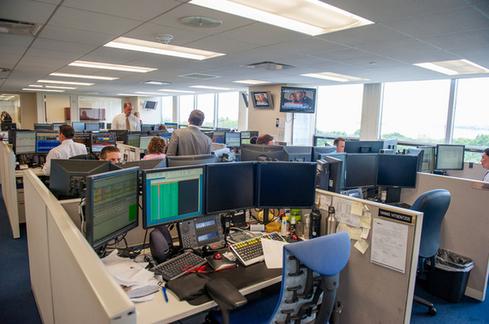07:45 AM
Operational Risk Takes Center Stage: Heller Financial Faces Its Operational Challenges Head On
A seemingly simple filing process, performed on a regular basis ... the filing of Uniform Commercial Code (UCC) statements was just one of many things that made Mike Litwin, chief credit and risk officer at Heller Financial, scratch his head. Upon review of Heller's losses, most of which were chalked up to the credit risk area, Litwin found that the firm had racked up a $5 million non-earning asset and potential write-off for failing to file a UCC amendment in a timely fashion. Heller--a finance company providing capital and financial services to mid-market and small businesses--files thousands of these UCC statements to make its loans public record. If one mistake could cost Heller millions, a breakdown in the overall process could have "significant potential risk to the company," says Litwin.
In another case Heller found out the hard way that its processes for making sure background checks were performed is actually quite important and was costing valuable losses. It might be just another box to check on a form when it comes to issuing loans, but in one instance it cost Heller $100,000. The process may have been flawed, misunderstood or not properly in place and as a result of either not properly performing or not performing a background check at all, Heller was defrauded by a convic-ted felon who ended up defaulting on a loan.
Were these just glitches in the overall process, or simple mistakes? Litwin didn't want to take any chances. He had what he refers to as an "epiphany" about a year and a half ago when he stepped back and realized that his credit department was experiencing some write-offs that "didn't really feel like credit write-offs," as he puts it. When it came down to it, the write-offs were coming through the credit department because there was a borrower that in many cases had failed. But Litwin had a feeling that these write-offs were more operational in nature, specifically related to the processes in place in his and other business lines in the firm. "I was able to identify problems virtually everywhere. Again, most were fairly minor, but nonetheless, the problems were pervasive," says Litwin. And although Heller does not deal in the securities and investment arena, the lessons Heller learned could be invaluable to Wall Street.
Litwin was right about the operational risk, but he had a hard time pushing for operational risk management initiatives at a time when Heller had a record quality of credit, low non-earning assets and low write-offs. While high-profile operational losses at financial services firms such as Charles Schwab, E*Trade, Bank of New York and Fidelity, to name just a few, were traced to more visible culprits such as system failures, hacker interruption and money laundering, the billions of dollars lost were still ultimately chalked up to operational risks.
For its own use, Heller came to develop a fairly broad definition of operational risk as the risk of direct or indirect loss resulting from inadequate or failed internal processes, people and systems or from external events. Heller engaged the help of eRisks, a risk management consultancy and online portal, in order to aid the firm's effort to identify key risk issues and articulate them into an overall enterprise-wide risk management plan. "It gave us a framework from which to approach this problem in a more constructive fashion and ultimately mitigate the risk," says Litwin. "Then we could articulate operational risk in a way that we hadn't in the past and, in turn, people could understand it."
Following the assessment, Heller's first steps toward progress have thus far included the selection of operational risk managers, as well as a head operational risk officer, the formation of an operational risk council, and the production of monthly operational risk reports. With regard to the background check process, Litwin says it was an easy problem to fix once the employees were made aware of the policy to perform the background check and the process was made clear. "That is the kind of thing that just having gone through the exercise to make sure that you have appropriate checks and balances in place, then the error probably never occurs again," he explains. The same pretty much goes for the UCC filing process. Once it had been reviewed, Litwin says the process was found to be inefficient because the filings were passing through too many hands.






















